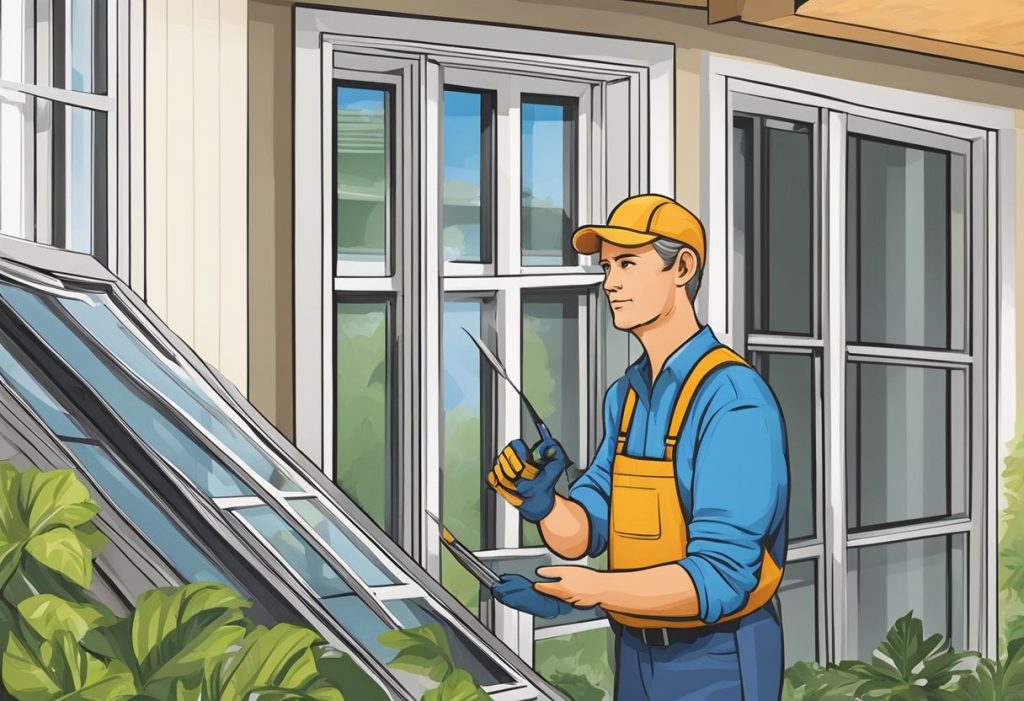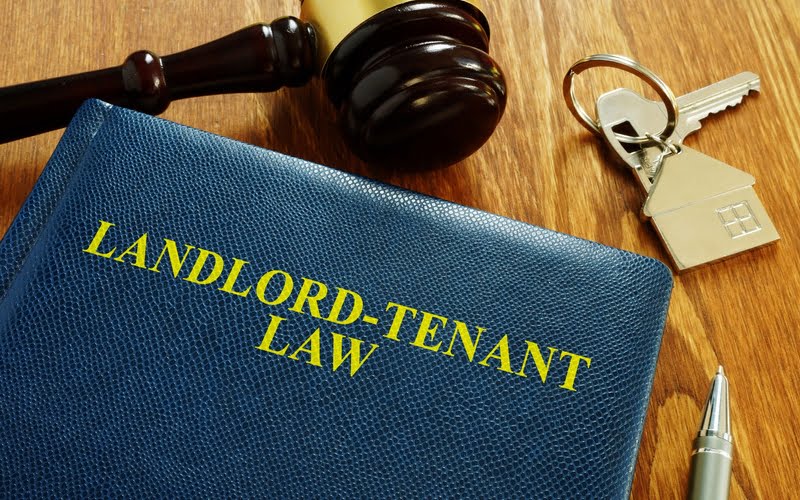Last Updated on March 18, 2024 by Kelvin Nielsen
Landlords in Florida are responsible for maintaining their rental properties in a safe and habitable condition. One of the common issues that landlords and tenants face is damaged window screens.
Window screens are important for keeping out insects and other pests, as well as providing ventilation.

So, how often must landlords repair damaged window screens in Florida? According to Florida law, landlords are required to maintain the rental property in a good condition, including repairing or replacing damaged window screens.
However, there is no specific time frame or frequency mentioned in the law for repairing or replacing window screens. It ultimately depends on the extent of damage and the landlord’s discretion.
Related Posts:
- Can a Landlord Terminate a Lease Early in Florida?
- Are Landlords Responsible for Pest Control in Florida?
- Florida Tenant Rights When Landlord Sells Property
Landlord Repair Responsibilities in Florida
Legal Framework for Repairs
Florida Statutes require landlords to maintain their rental properties in a habitable condition. Landlords must ensure that the rental unit meets all building codes and safety standards.
The warranty of habitability also requires landlords to make necessary repairs to keep the rental unit habitable.
Specifics of Window Screen Repairs
According to Florida law, landlords are responsible for repairing damaged window screens in their rental properties. Window screens must be free from holes, tears, and other damages that may allow pests or insects to enter the rental unit.
Tenants must notify their landlords of any damaged window screens, and landlords must make the necessary repairs within a reasonable time.
Maintenance of Structural Components
In addition to window screens, landlords are responsible for maintaining other structural components of their rental properties. This includes roofs, exterior walls, doors, foundations, and other essential parts of the rental unit.
Landlords must ensure that these components are free from damages that may affect the habitability of the rental unit.
Related Posts:
- Roommate Laws in Florida
- Can Landlords Shut Off Electricity in Florida?
- Florida Landlord Tenant Law Security Deposit
Tenant Rights and Remedies

Withholding Rent and Repair and Deduct
Under Florida law, tenants have the right to withhold rent or repair and deduct if the landlord fails to repair or maintain the rental property, including damaged window screens. However, tenants must follow certain procedures before taking these actions.
Tenants must provide written notice to the landlord of the needed repairs and give the landlord seven days to make the repairs. If the landlord fails to make the repairs, tenants may withhold rent or repair and deduct, but only up to the amount of one month’s rent.
Legal Options and Consultation
If a landlord retaliates against a tenant for exercising their rights, such as by raising the rent, reducing services, or threatening eviction, tenants may have legal options. Tenants can seek consultation from a tenant organization or a lawyer who specializes in landlord-tenant law.
Tenants can also cancel the lease if the landlord fails to make repairs within seven days of receiving written notice. However, tenants should be aware that canceling the lease may result in legal consequences and should consult with a lawyer before taking this action.
Related Posts:
Frequently Asked Questions

What are a landlord’s legal responsibilities for repairs under Florida law?
Under Florida law, landlords are required to maintain their rental properties in a habitable condition. This includes repairing and maintaining all essential facilities, such as plumbing, electrical systems, and windows. Failure to meet these obligations may result in legal action by tenants.
Is there a specific timeframe within which a landlord must address repairs in Florida?
Florida law does not specify a timeframe for landlords to address repairs. However, landlords are required to make repairs within a reasonable amount of time after being notified of the problem. The timeframe may vary depending on the severity of the issue.
Does Florida law require landlords to provide and maintain window screens?
Yes, Florida law requires landlords to provide and maintain window screens in every rental unit. The screens must be in good condition and free from defects that would prevent them from functioning properly.
How does the implied warranty of habitability in Florida affect a landlord’s repair duties?
The implied warranty of habitability in Florida requires landlords to maintain their rental units in a habitable condition. This means that the rental unit must be safe, clean, and free from any defects that may pose a threat to the tenant’s health or safety. Failure to meet these obligations may result in legal action by tenants.
What actions can a tenant take if a landlord fails to repair a damaged window screen in Florida?
If a landlord fails to repair a damaged window screen, a tenant may take legal action against the landlord. The tenant may file a complaint with the local housing authority or take the landlord to court to seek damages.
Under what circumstances can a tenant in Florida request a relocation allowance due to unaddressed repairs?
Under Florida law, a tenant may request a relocation allowance if the landlord fails to address repairs that affect the habitability of the rental unit. The tenant must provide written notice to the landlord of the issue and give the landlord a reasonable amount of time to make the repairs.
If the repairs are not made, the tenant may request a relocation allowance to cover the cost of moving to a new rental unit.
Disclosure: The content herein isn’t a substitute for advice from a professional attorney. It’s only meant to serve educational purposes. If you have a specific question, kindly seek expert attorney services.
Sources: FL Statutes Chapter 83 Part II, Warranty of Habitability in Florida

Amanda Rose is a seasoned landlord with 13+ years of expertise in overseeing diverse properties. Her adept management spans single and family homes, along with multi-family apartments and condos, across Wyoming and South Dakota. Her commitment and proficiency have cemented her status as a thriving property management professional.
She is a member of the following organizations: Wyoming Landlord’s Association, National Association of Residential Property Managers (NARPM), Wyoming Apartment Association, South Dakota Multi-Housing Association (SDMHA), and South Dakota Landlord Association (SDLA).







